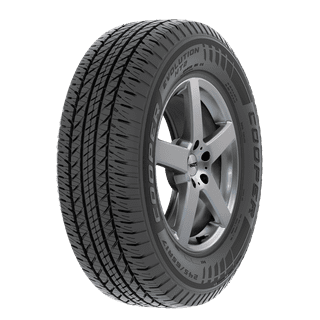Get Specialist Tire Solutions at Tire Shop Morris: Satisfaction Ensured
Get Specialist Tire Solutions at Tire Shop Morris: Satisfaction Ensured
Blog Article
Tire Service: Comprehending Tire Stress Tracking Solutions
Comprehending Tire Stress Surveillance Solutions (TPMS) is a critical facet of preserving optimal automobile efficiency and security when driving. With advancements in auto innovation, TPMS has ended up being a basic attribute in contemporary automobiles, providing real-time information on tire pressure levels. Diving deeper right into the intricacies of TPMS, one can discover the various elements that comprise this system and the significance of each in guaranteeing accurate surveillance. From direct to indirect TPMS systems, the landscape of tire stress tracking is varied, each with its distinct set of advantages and considerations. Keep tuned to unravel the intricacies of TPMS, from upkeep ideas to the undeniable benefits of maintaining your tires appropriately pumped up. tires morris il.

Relevance of TPMS
The significance of Tire Stress Surveillance Systems (TPMS) depends on their capability to boost lorry safety and performance with real-time surveillance of tire stress levels. Maintaining the right tire stress is critical for guaranteeing ideal handling, braking, and general security of an automobile. TPMS gives vehicle drivers with immediate comments on any kind of underinflated or overinflated tires, enabling timely adjustments to be made.
Parts of TPMS
Making up various essential elements, a Tire Stress Tracking System (TPMS) functions as an innovative security feature in modern vehicles. The major components of a TPMS consist of sensors, a control component, and a caution sign. Sensing units are normally located in the tire shutoff stem or connected to the wheel assembly, where they determine tire stress and transfer information to the control module. If it discovers dramatically reduced stress in any of the tires, the control module processes this info and sets off a warning. The warning indication, often a sign on the dashboard, alerts the driver to inspect the affected tire or tires. Some advanced TPMS models additionally present the real tire pressure analyses for every tire, offering motorists with real-time details to ensure optimum tire performance and safety. By monitoring tire pressure continuously, TPMS helps stop accidents, lowers tire wear, and enhances gas performance, making it an important part for vehicle safety and performance.
Sorts Of TPMS

On the various other hand, indirect TPMS counts on the lorry's wheel rate sensors to monitor tire stress. This system spots underinflation by contrasting the rotational speeds of the wheels. Indirect TPMS is less expensive than direct TPMS, as it uses existing sensing units within the lorry.
While straight TPMS provides extra exact readings, indirect TPMS is easier in style and normally requires much less maintenance. Both systems have their benefits and constraints, and the option in between them typically relies on variables such as expense, lorry make, and personal preference. Recognizing the differences between these two kinds of TPMS can help automobile proprietors make informed decisions pertaining to tire maintenance and safety.
TPMS Maintenance Tips
Reliable upkeep of TPMS is vital for ensuring optimal performance and security of your automobile. Routinely checking the TPMS sensing units for any damage or corrosion is important. Make sure that the sensing units are complimentary and tidy her response from particles that might disrupt their performance. Additionally, it is a good idea to examine the sensor batteries occasionally and replace them as needed to ensure accurate analyses. Conduct regular checks on the tire pressure degrees and contrast them with the TPMS analyses to guarantee they correspond. If there are any kind of disparities, rectify the system adhering to the maker's standards. In addition, during tire rotation or substitute, make certain that the TPMS elements are dealt with very carefully to avoid any kind of potential damages. If the TPMS advising light brightens on the dashboard, address the problem quickly by examining the tire pressures and the overall system for any faults. By sticking to these maintenance tips, you can prolong the life-span of your TPMS and enhance the safety and security of your driving experience.
Advantages of Correct Tire Pressure
Maintaining correct tire stress, as highlighted in TPMS Maintenance Tips, is essential for reaping the numerous benefits linked with ideal tire pressure degrees. Furthermore, proper tire stress makes certain even tire wear, extending the life-span of the tires and advertising safer driving problems. In final thought, the benefits of proper tire stress go beyond simply tire durability; they encompass enhanced fuel effectiveness, enhanced security, much better car performance, and overall driving convenience.
Verdict
In final thought, understanding tire stress monitoring systems (TPMS) is essential for keeping ideal tire stress and guaranteeing vehicle security. By recognizing the importance of TPMS, being acquainted with its components, understanding the various types offered, sticking to proper maintenance ideas, and realizing the benefits of keeping appropriate tire stress, chauffeurs can boost their driving experience and prolong the life expectancy of their tires. Correct tire stress is essential to secure and efficient lorry operation.

Report this page